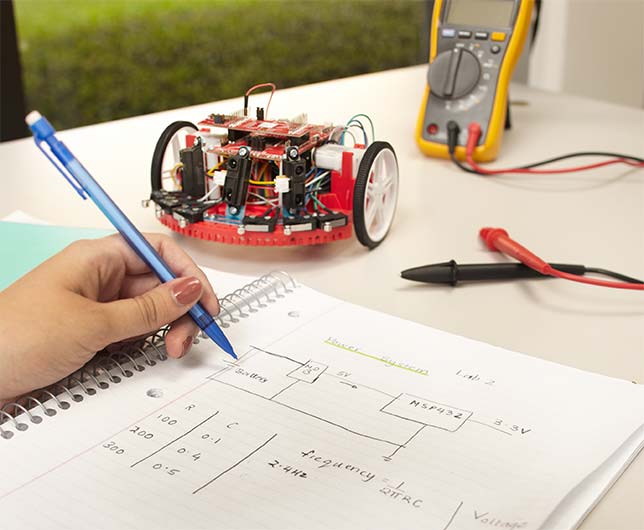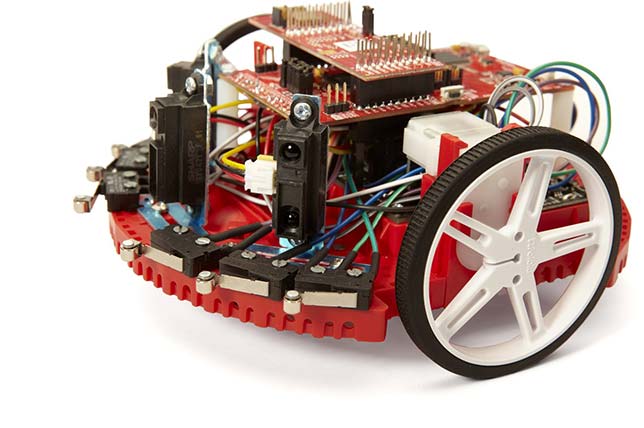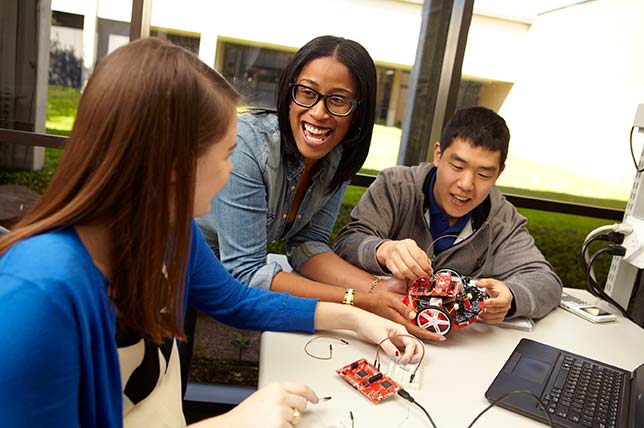TI Targets Engineering Students with Robotic System Learning Kit

Texas Instruments this week took the wraps off a new robotics system and curriculum aimed at university-level engineering students.
The TI Robotic System Learning Kit is available in two versions, Basic and Advanced. The Basic Edition ($99) includes the core SimpleLink MSP432P401R MCU LaunchPad development kit, which is designed for high-performance applications requiring low power consumption. It uses a 32-Bit ARM Cortex-M4F MCU with 16-bit ADC, 256 KB flash memory and 64 KB RAM. It also offers a 40-pin BoosterPack connector (with support for 20-pin BoosterPacks), an XDS-110ET emulator and two buttons and LEDs, among other features.
Also included in the Basic Edition are:
- A motor drive;
- Power distribution board;
- Robot chassis;
- Various motors;
- Line IR sensors; and
- "50+ other mechanical and electronic components," according to TI.

The Advanced Edition ($199) includes all of those components, plus:
- SimpleLink Bluetooth low-energy CC2650 module BoosterPack plug-in module;
- SimpleLink WiFi CC3120 wireless network processor BoosterPack plug-in module;
- Distance IR sensors; and
- Tachometer.
The first curriculum released for the kit is the Maze Edition Curriculum, which includes 20 modules covering a wide range of electrical engineering and robotics concepts and activities. The full curriculum can be viewed on TI's site.

"Whether taught as an introduction in the freshman year or as an advanced design lab later on, the TI-RSLK is an effective means for students to get a hands-on learning experience of engineering concepts that span electrical, mechanical and computer science systems," said Jon Valvano, electrical and computer engineering professor at University of Texas at Austin, who developed the TI-RSLK with TI. "This not only encourages many students to pursue an electrical engineering degree in the first place, but to also persist in their field of study as it gets more challenging."
Complete details can be found on TI's site.